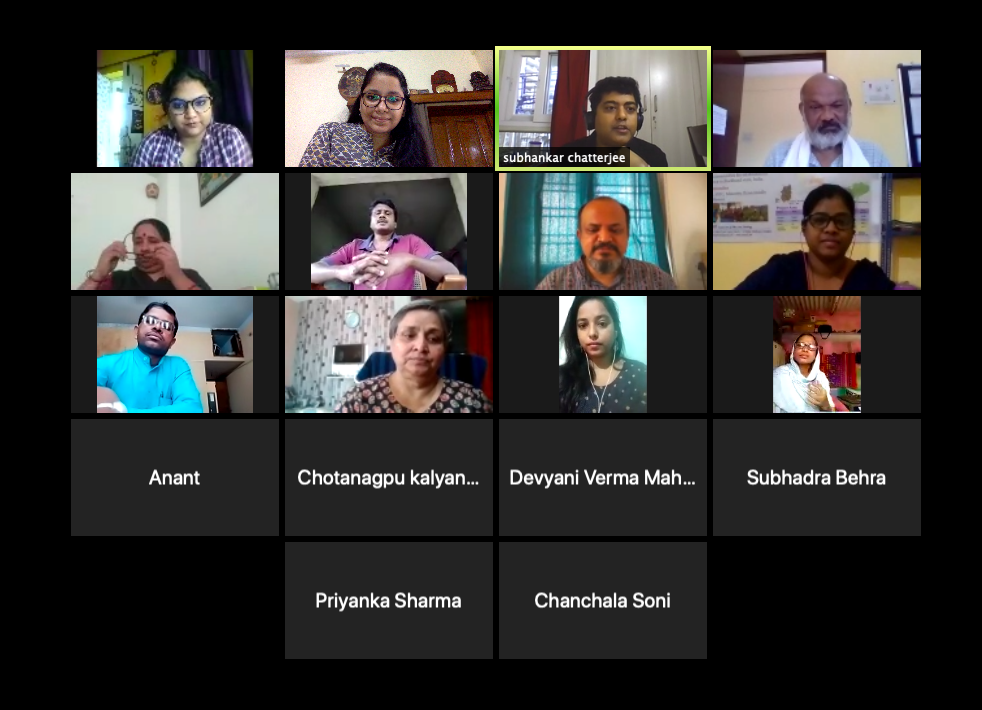Episode 18: Dismantling Patriarchy – Close Encounters and Imperfect Strategies
Look around you and you’ll find many conversations about reimagining and transforming how we live and work – from how we enable the plant to thrive, to new ways of envisioning economics. And in all kinds of organizations, we are seeing real challenges to what was previously unchecked – abusive power dynamics, toxic work environments, sexual harassment, racism, and discrimination against all kinds of people who don’t fit what was considered ‘the norm’. In this episode – the first in a series of three – Srilatha Batliwala, David Kelleher, Lisa Veneklasen, Joanne Sandler and Aruna Rao reflect on the their close encounters with patriarchy in organizations and the dynamics they tried to ignite to challenge them which they outlined in their article on Medium.
A calling to do the work

Mitchel Ondili, Research Assistant at The Centre for Intellectual Property and Information Technology Law, reflects about gender bias in research.
Episode 17: Intergenerational Conversations on Organizing for Gender Equality
On the eve of the Generation Equality Forum (GEF) in Paris, Aruna Rao and Joanne Sandler – veterans of the 1995 Beijing conference – have an intergenerational talk with three young activists: Priya Kvam and Amani Jui from Breakthrough US and Natalia Escruceria Price, an independent consultant formerly with JASS. Our exchange with these young activists highlights …
Episode 16: Are Our Strategies Fit for Purpose?
Gender mainstreaming and the two-track approach to achieve gender equality were two strategies for strengthening organizations’ action on gender equality that grew out of the 1995 Beijing Conference on Women. Twenty-six years later, the world looks very different with multiple crises of inequality, violence against women and LGBTIQ people, climate extinction and less faith in democracy and the old social contract. Have our strategies delivered on their promise?
Feminists Leading Change: Renata Avila
Meet Renata Avila, a feminist reimagining Artificial Intelligence to include us all. Expert in digital rights, she studies the politics of data, the evolution of transparency, and their implications on trade, democracy and society, alerting about a phenomenon she describes as digital colonialism. She is a Guatemalan, International Human Rights Lawyer and author. She is currently an HAI Race & Tech Fellow at Stanford University. With more than fifteen years of experience working in cutting edge issues related to technology and society. She co-founded and leads the
Feminists Leading Change: Nitika Pant
Meet Nitika Pant. A woman challenging gender norms and leading those in her community with her, in her revolution. Nitika Pant is a co-founder of SAKAR, India, which was established in 2005. Nitika and her organisation promote gender equality and minority rights. She is especially concerned about the health and education of adolescent girls in Bareilly, India, where she lives.
Feminists Leading Change: Kelsie Joseph
Meet Kelsie Joseph, a young feminist activist leading the change in addressing gender-based violence (GBV) in Trinidad and Tobago. GBV is at its heights in Trinidad and Tobago and young women are demanding their government to prioritize their safety. Kelsie is on the front lines in protests and demanding action. Kelsie is part of the leadership team of the global youth movement: Chalk Back. She is the co-founder of catcallsofUWI (University of West Indies).
Feminists Leading Change: Lina Abou-Habib
Meet Lina Abou-Habib. A woman blazing trails for all in Lebanon, the MENA region and beyond. Lina is currently a Senior Policy Fellow at the Issam Fares Institute for Public Policy and International Affairs (American University of Beirut). She also serves as the Chair of the Collective for Research and Training of Development-Action (CRTD-A) and is a Strategic MENA Advisor for the Global Fund for Women. She is a member of the editorial board of the Gender and Development journal published by Oxfam and Routledge. Abou-Habib was the former Executive Director of WLP Lebanon/Collective for Research and Training on Development–Action (CRTD-A), and is a co-founder and coordinator of the Machreq/Maghreb Gender Linking and Information Project.
Reimagining Capacity Building Programmes in a Virtual World

The same day in March that the World Health Organisation (WHO) declared the COVID-19 outbreak as a global pandemic, my Gender at Work colleagues and I were in a meeting room in Hyderabad. Oblivious to this fact, we were diligently planning for what promised to be a busy year for the next phase of the Project funded by Oak Foundation. After successfully executing phase 1 of the project, our first larger collective planning session for the second phase was scheduled for April 2020. We drafted a broad agenda to be finalized after our discussion with Civil Society Academy (CSA), co-grantee in this project. Needless to say, things did not go as we had planned.
How Transnational Feminist Organizing Offers a Model for the Future
The relegation of all matters related to women and what is referred to as “families” to religious institutions and religious laws has proven to be at the detriment of women and children. In fact, family laws have proven to be hazardous to women and to gender non-conforming.
